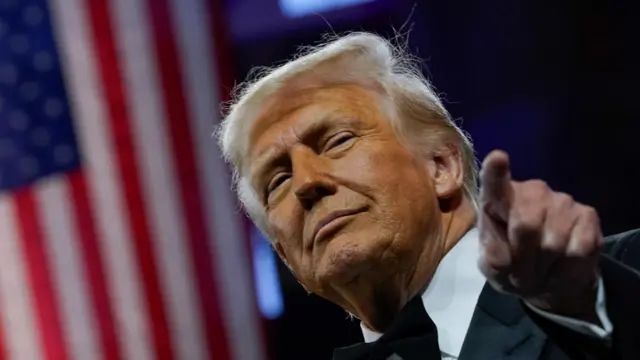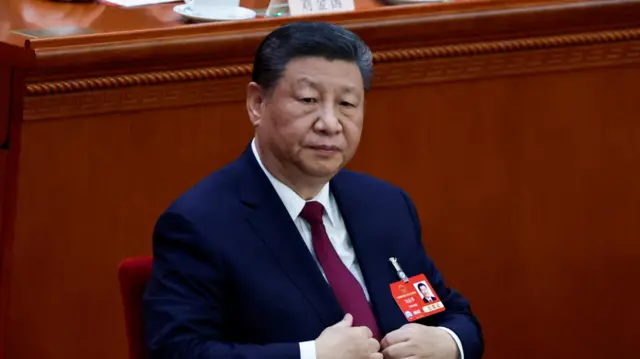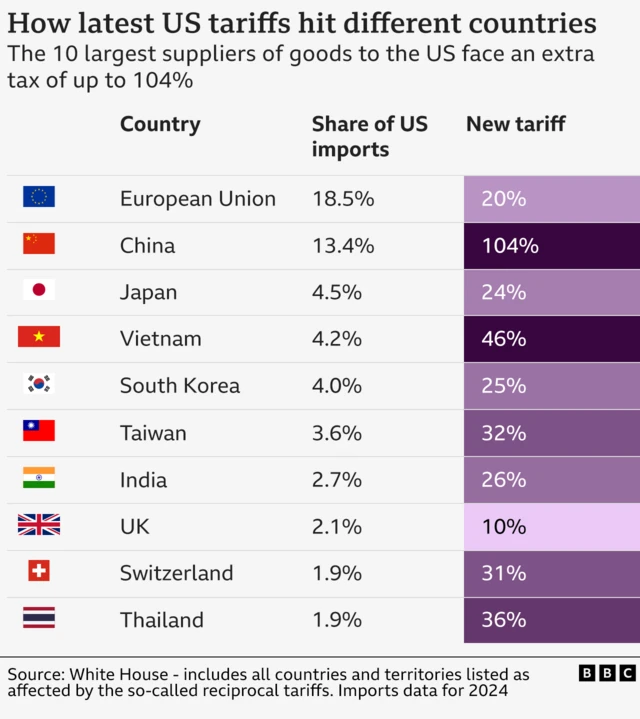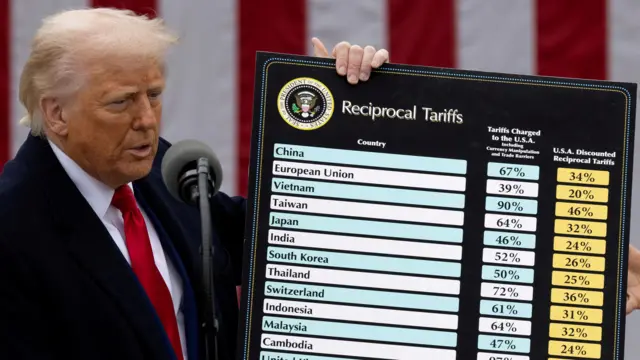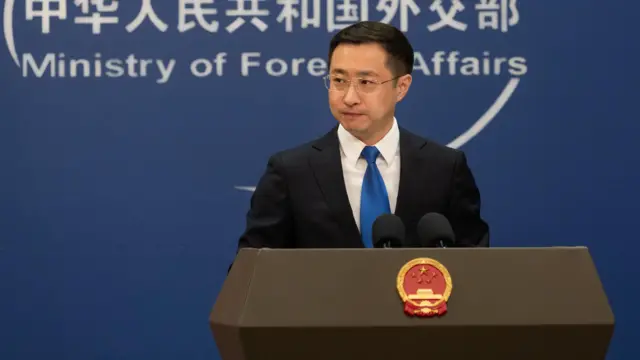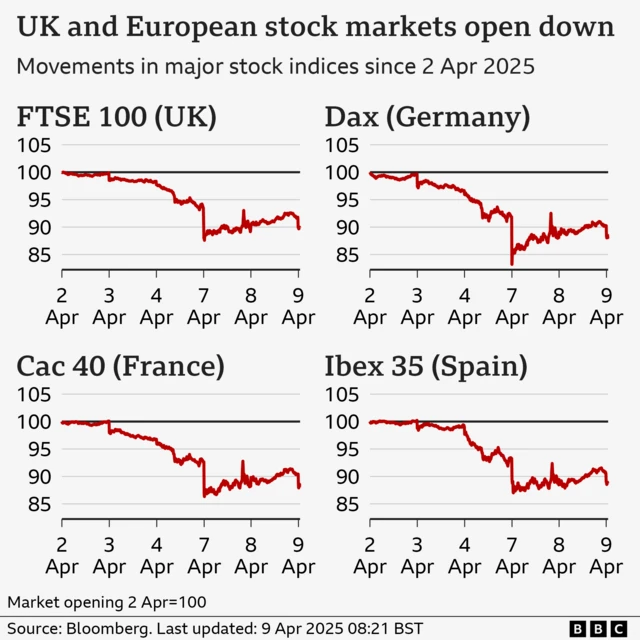
Tariffs could be 'nail in coffin' for small businesses, says MrBeastpublished at 10:34 BST 9 April
Tom Singleton
Technology reporter
 Image source, EPA
Image source, EPAThink of who would be affected by the global turmoil the tariff war is causing and MrBeast - the world's most successful YouTuber - probably isn't the first person who springs to mind.
But as well as making viral videos, MrBeast, whose real name is Jimmy Donaldson, has a number of side hustles, including a chocolate business, Feastables.
While it is a US company, America isn't exactly renowned as a cocoa producer, meaning their chocolate bars rely on imported raw ingredients - now facing tariffs.
The Trump administration hopes its import levies will encourage more companies to set up in the US. For Feastables, the opposite is true.
"Ironically because of all the new tariffs it is now way cheaper to make our chocolate bars we sell globally NOT in America," MrBeast posts on X.
"We'll figure it out. I feel for small businesses though. Could really be a nail in the coffin for them," he adds.
His intervention is bad news for the White House because it's a real world example of the potential unintended consequences of its policies.
But secondly - and possibly more importantly - it represents one of the most influential voices for young Americans publicly criticising the Trump tariff policy.
